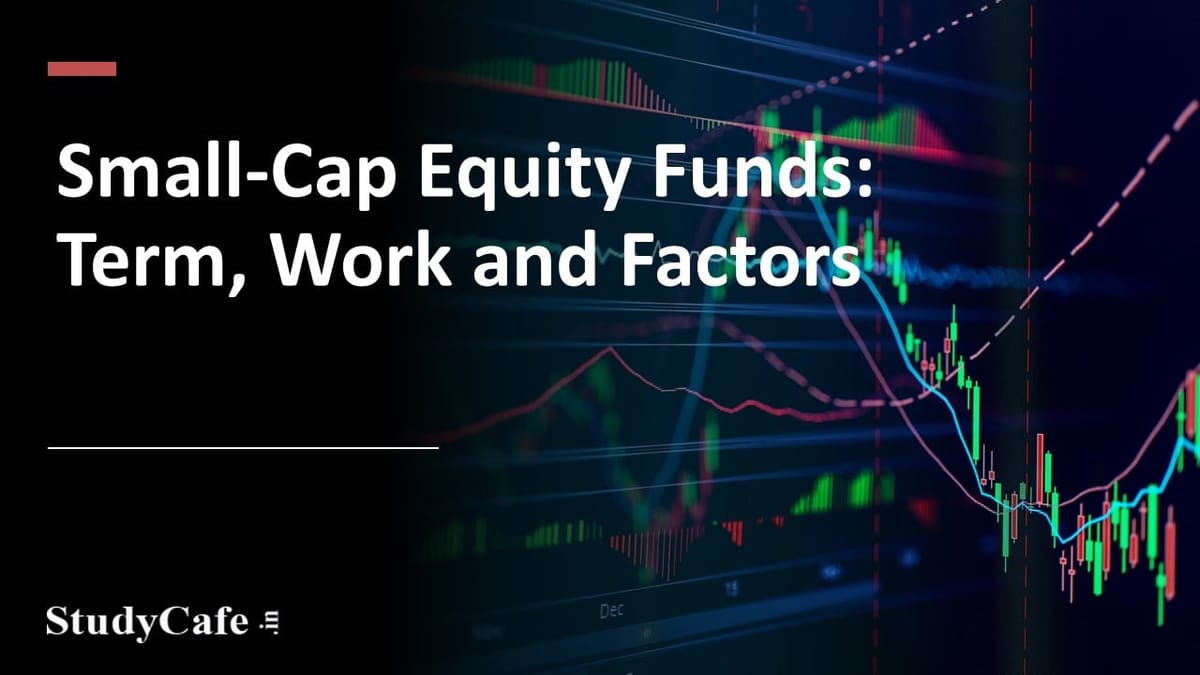Deepshikha | Dec 5, 2021 |

What are Small-Cap Equity Funds and How Do They Work?
The “cap” in small-cap stocks refers to the total market value of a company’s publicly traded shares, which determines its capitalisation. Small-cap stocks are publicly traded companies with a market capitalization of less than Rs 5,000 crore. Technically, because the underlying companies are new and actively expanding, they are more volatile and subject to losses during market downtime. The fund manager of a small-cap fund invests at least 65 per cent of the portfolio in small-cap stocks.
Individual investors have an advantage over institutional investors when it comes to small-cap stocks. This is because institutional investors prefer large-cap companies because of their stability, whereas investors seeking aggressive returns will participate in these funds. Furthermore, fund composition is critical, and a hasty decision could jeopardise your investment.
Investors who are willing to take on more risk might consider investing in this category. A limited percentage of one’s portfolio should be devoted to small-cap funds. When putting together a stock portfolio for yourself, it’s critical to have a benchmark to measure your results to. An investor can correctly measure the performance of his or her portfolio by comparing it to a benchmark.
We might also suggest that shunning small-cap funds isn’t a smart method to deal with the situation. Indeed, such an escape may keep you from reaping the benefits of its magical return-generating potential. When dealing with these funds, one must have patience. Otherwise, improper switches or redemptions may quickly undermine the gains gained by your portfolio.
The volatility of small-cap funds is higher than that of large-cap and mid-cap funds. Small-cap funds suffer a lot when the markets aren’t performing well because they’re newer and are more likely to go out of business. On the other hand, it’s an excellent investment option for individuals who are willing to take on greater risk and seek more aggressive development.
The tiny category has performed remarkably well in recent years, attracting a great deal of investment attention and money. Small-cap funds are seen to have substantial yet untapped potential to one day be a “multi-bagger” (Indian financial lingo for an equity stock that returns more than 100%).
The cost ratio is the annual fee charged by small-cap equity funds to handle your money. The top limit has been set at 2.25 per cent of the average asset under management by SEBI. At the end of the day, a reduced expense ratio equates to higher returns. As a result, while shortlisting funds, search for those with the lowest expenditure ratio.
When the market starts to fall, small-cap funds face a significant loss of value. As a result, you must stay invested for the long term for the fund to achieve the profits you want. When you explore this choice for a time horizon of 7-10 years, you are considering a long-term investment horizon.
Small-cap equity funds may be appropriate for investors with long-term goals such as saving for retirement, taking a family trip to an exotic location, paying off medium-term debt, and so on. When the markets are optimistic, these funds have historically provided larger returns than the broad benchmark. These bets, however, can be quite dangerous. Those with a high-risk appetite may want to consider investing in these funds. These funds put their money into businesses that have a lot of potential for making money.
You receive capital gains when you redeem units of small-cap equity funds. In your possession, these capital gains are taxable. The rate of taxation is determined by how long you hold these funds; this time is known as the holding period.
Short-term capital gains are capital gains earned on investments held for less than a year (STCG). STCG is subject to a 15% tax rate. Long-term capital gains, on the other hand, are capital gains earned over longer than one year (LTCG). LTCG of more exceeding Rs 1 lakh would be taxed at 10% without indexation as a result of the 2018 budget revisions.
When choosing a fund, you should look at it from a variety of perspectives. Several quantitative and qualitative criteria can be utilised to determine the finest small-cap equity funds for your needs. It’s also a good idea to keep your financial objectives, risk tolerance, and investing horizon in mind.
In case of any Doubt regarding Membership you can mail us at [email protected]
Join Studycafe's WhatsApp Group or Telegram Channel for Latest Updates on Government Job, Sarkari Naukri, Private Jobs, Income Tax, GST, Companies Act, Judgements and CA, CS, ICWA, and MUCH MORE!"